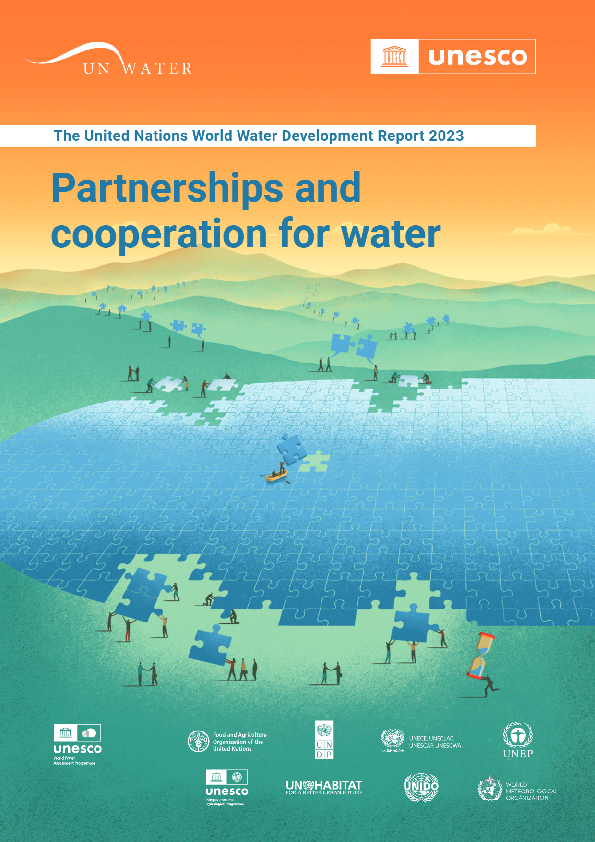 Read this article in French
Read this article in French- Share this article
- Subscribe to our newsletter
UN World Water Development Report 2023
Globally, two billion people (26 per cent of the population) do not have safe drinking water and 3.6 billion (46 per cent) lack access to safely managed sanitation, according to the UN World Water Development Report 2023, published by UNESCO on behalf of UN-Water and released at the UN 2023 Water Conference this March.
The report gives insight into the main trends concerning the state, use and management of freshwater and sanitation, based on work by Members and Partners of UN-Water. It provides decision-makers with knowledge and tools to formulate and implement sustainable water policies. Moreover, it offers best practice examples and in-depth analyses to stimulate ideas and actions for better stewardship in the water sector and beyond.
Nearly every water-related intervention involves some kind of cooperation. Growing crops requires shared irrigation systems among farmers. Providing safe and affordable water to cities and rural areas is only possible through a communal management of water-supply and sanitation systems. And cooperation between these urban and rural communities is essential both to maintaining food security and upholding farmer incomes.
Managing rivers and aquifers crossing international borders makes matters all the more complex. While cooperation over transboundary basins and aquifers has been shown to deliver many benefits beyond water security, including opening additional diplomatic channels, only six of the world’s 468 internationally shared aquifers are subject to a formal cooperative agreement.
Environmental services, such as pollution control and biodiversity, are among the shared benefits most often highlighted in the report, along with data/information-sharing and co-financing opportunities. For example, ‘water funds’ are financing schemes that bring together downstream users, like cities, businesses and utilities, to collectively invest in upstream habitat protection and agricultural land management to improve overall water quality and/or quantity.
(UNESCO/ile)
Read more and download the report on the UNESCO website





Add a comment
Be the First to Comment